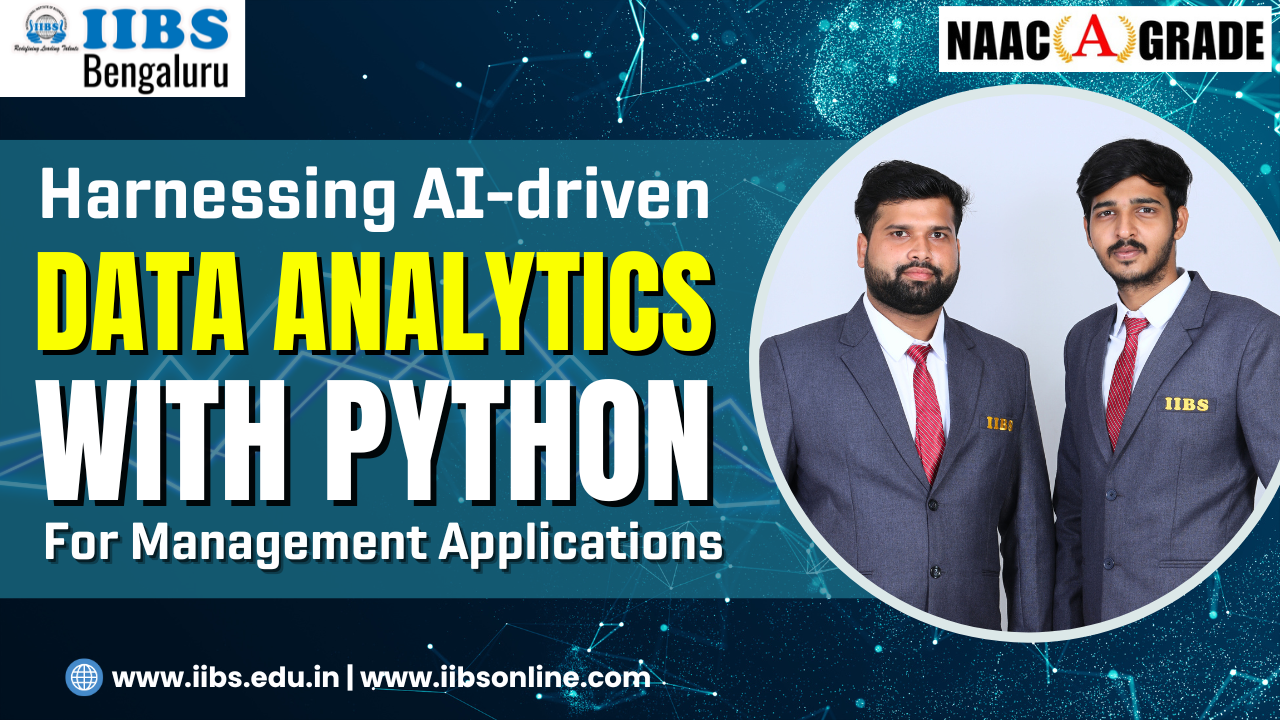Harnessing AI-driven Data Analytics with Python for Management Applications

Introduction
In today's data-rich business landscape, organizations across various industries are increasingly turning to data analytics to derive actionable insights and gain a competitive edge. With the advent of artificial intelligence (AI) and machine learning, data analytics has evolved into a powerful tool for decision-making and optimization in the management field. This article explores how AI-driven data analytics, implemented using Python, can revolutionize management practices, enabling organizations to extract valuable insights, streamline operations, and drive strategic initiatives.
Utilizing Python for AI-driven Data Analytics
Data Collection and Preprocessing: Python's versatile libraries such as Pandas, NumPy, and Scikit-learn facilitate data collection, cleaning, and preprocessing tasks. Management datasets from various sources including CRM systems, financial records, and operational databases can be ingested and standardized for analysis.
Exploratory Data Analysis (EDA): Python's libraries, coupled with AI techniques, enable exploratory data analysis to uncover patterns, trends, and anomalies within the data. Visualization libraries like Matplotlib and Seaborn aid in creating informative charts and graphs for data exploration, helping managers gain a deeper understanding of their business processes.
Predictive Modeling: Python offers a plethora of AI and machine learning libraries, such as TensorFlow, Keras, and Scikit-learn, for building predictive models. Supervised learning algorithms can be employed for tasks like customer churn prediction, sales forecasting, and risk assessment, empowering managers to anticipate future outcomes and make informed decisions.
Natural Language Processing (NLP): Python's NLP libraries like NLTK and SpaCy enable sentiment analysis, text mining, and language processing tasks. In management, NLP techniques can be applied to analyze customer feedback, social media data, and textual documents, providing valuable insights into customer preferences, market trends, and competitor strategie
Recommendation Systems: Python-based recommendation systems, utilizing collaborative filtering or content-based filtering algorithms, can personalize product recommendations, content suggestions, and marketing campaigns. These systems enhance customer engagement and satisfaction, driving revenue growth and loyalty in management contexts.
Benefits and Challenges
Enhanced Decision-making: AI-driven data analytics in Python empowers managers with data-driven insights for strategic decision-making, resource allocation, and performance optimization.
Efficiency and Scalability: Python's ecosystem of libraries and frameworks facilitates efficient development and deployment of AI models, enabling scalable data analytics solutions for organizations of all sizes.
Interpretability and Transparency: Despite the sophistication of AI algorithms, ensuring interpretability and transparency in model outputs is essential for gaining stakeholder trust and acceptance.
Skill Requirements: Implementing AI-driven data analytics requires skilled personnel proficient in Python programming, machine learning, and data science concepts, which may pose challenges for organizations lacking in-house expertise.
Conclusion
Python, with its rich ecosystem of libraries and AI frameworks, has emerged as a preferred choice for implementing data analytics solutions in the management field. By leveraging AI-driven data analytics in Python, organizations can unlock the full potential of their data assets, drive innovation, and achieve competitive differentiation. However, addressing challenges related to skill development, model interpretability, and ethical considerations is crucial for realizing the transformative impact of AI-driven data analytics in management applications. With strategic investment, collaboration, and a commitment to data-driven decision-making, organizations can harness the power of Python-based AI-driven data analytics to thrive in today's dynamic business environment.
Leave a Reply
Your email address will not be published. Required fields are marked *



0 Replies to "Harnessing AI-driven Data Analytics with Python for Management Applications"